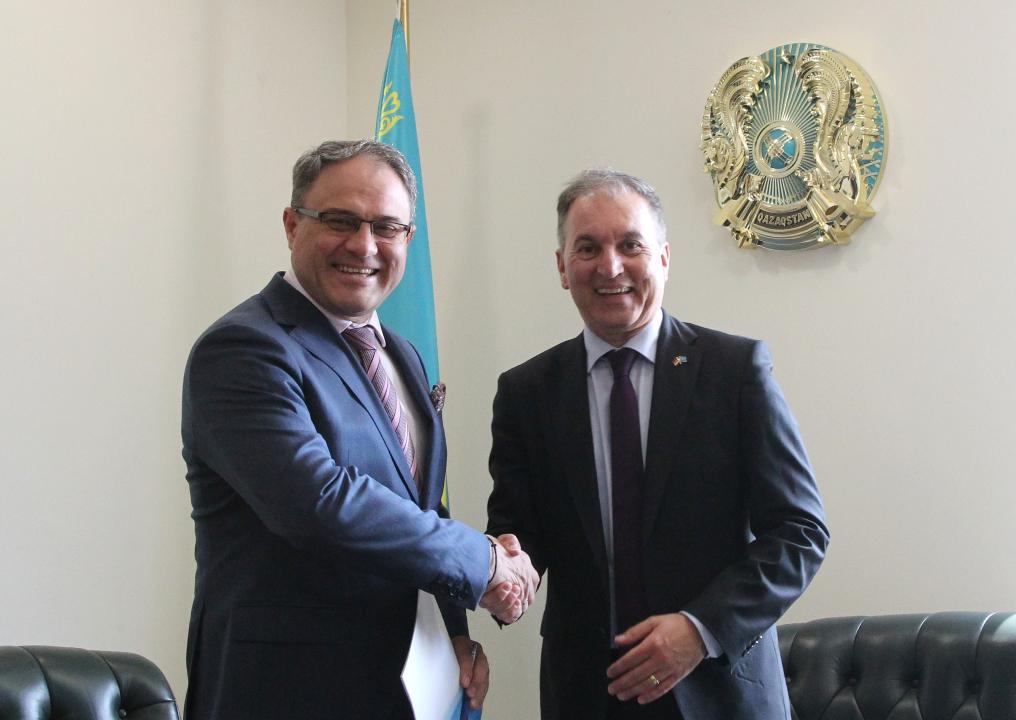ASTANA – Kazakh-German cooperation in education can reach a new level considering the development of human capital with German know-how and advanced technologies, Deputy Foreign Minister Roman Vassilenko said at the 37th meeting of the Berlin Eurasian Club on May 16 in Astana, reported the Foreign Ministry’s press service.

Roman Vassilenko with Vito Cecere. Photo credit: gov.kz.
Vassilenko highlighted the steadfast development of cooperation between the two countries, saying that expanding a local pool of professional technical experts is paramount to facilitating industrialization and increasing Kazakhstan’s industrial potential.
Vito Cecere, director for Research and Academic Relations Policy, Education and Research Policy, and Cultural Relations Policy at the German Federal Foreign Office, stressed the progress the two foreign ministries achieved in joint projects. They aim to support the activities of the Goethe Institute in Kazakhstan, the German Academic Exchange Service (DAAD), the Schools: Partners for the Future (PASCH-schools) initiative, the Kazakh-German University, and the Foundation for the Support of Ethnic Germans Abroad.
Vassilenko and Cecere discussed the current state of political relations and the potential for closer cooperation in education, science and research.
To increase the number of joint economic and investment projects in Kazakhstan, the sides reaffirmed their commitment to developing educational and scientific exchanges and training a local workforce in technical specialties.
One of the flagship projects in education is the upcoming opening of the Kazakh-German Engineering Institute at the Yessenov Caspian State University of Technology and Engineering in Aktau. The institute plans to enroll the first students for the energy and environmental engineering and logistics educational programs this academic year. Other regions of Kazakhstan are also set to open similar educational institutions.
German Economy Eastern Committee board member Manfred Grundke noted the positive dynamics in trade and economic cooperation, stating that German entrepreneurs are keen to expand their presence in the Kazakh market.
Trade between Kazakhstan and Germany remains strong despite disruptions in global supply chains, reaching $2.8 billion last year, a 24.7% increase compared to 2021, according to the Kazakh statistics.
According to German statistical data, however, this figure reached 9.7 billion euros ($10.5 billion). Kazakhstan climbed ten positions up to 43rd place among Germany’s foreign trading partners at year-end 2022. In turn, Germany ranked 10th among the Kazakh economy’s largest investors.
